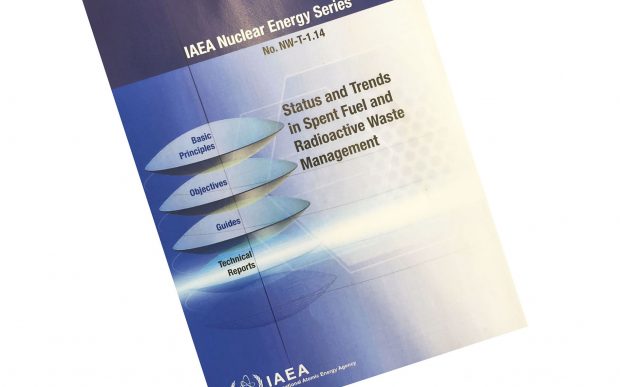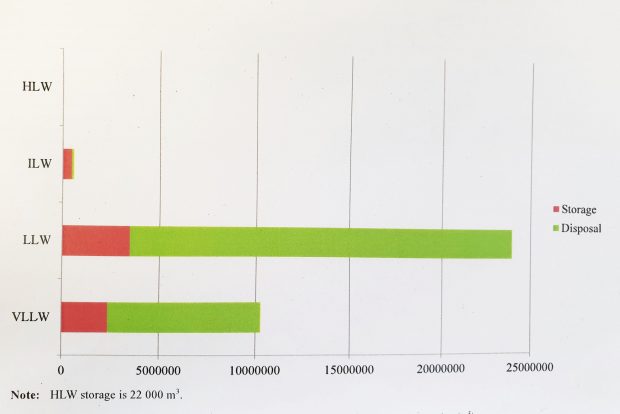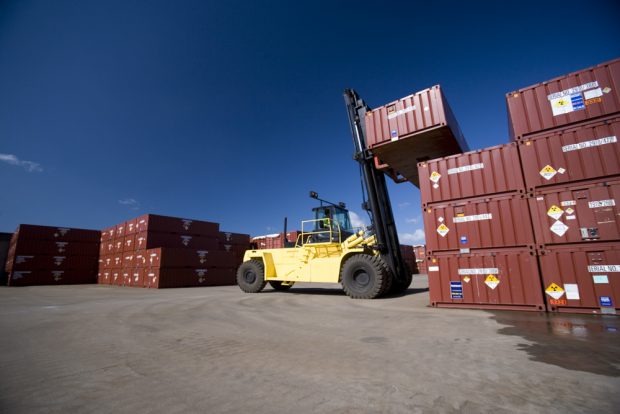
Have you ever wondered how much radioactive waste exists in different countries? Or if there are differences in how countries are planning to manage or dispose of it?
These are some of the things I discussed at a recent meeting of technical experts in radioactive waste and spent fuel management at the International Atomic Energy Association (IAEA).
Engaging with the IAEA and member countries
One of the most fascinating parts of my role as the National Waste Inventory Manager is engaging with international peers in the field of radioactive waste and spent fuel management and sharing best practice.
In July, I gathered with 25 technical experts from other member countries such as Canada, France, United States and Spain to discuss the current status of radioactive waste and spent fuel inventory management at the IAEA’s Technical Meeting on Status and Trends in Spent Fuel and Radioactive Waste Management. One of the things we discussed was the update to the UK’s national radioactive waste and materials inventory being undertaken now.
The UK is a member state of the IAEA, and one of our obligations is to submit information on the inventory of our radioactive waste and spent fuel and on the progress of waste management programmes. One IAEA initiative has been the development of a summary ‘Status and Trends’ report to describe:
- A global overview of radioactive waste and spent fuel inventories
- A summary of individual countries’ approaches to waste management
- A summary of global trends and challenges in radioactive waste and spent fuel management
In 2018, the first ‘Status and Trends’ report was published and the UK is currently inputting into an updated report.
Levels of radioactive waste
The UK is just one of a large number of countries managing radioactive waste and spent fuel, representing a very small fraction of the global total. One of the trends in the latest Status and Trends report was that a significant proportion of global Low Level Waste (LLW) has already been disposed of to date (see Fig 3). This is similar to the UK where a lot of progress has been made in consigning LLW to designated disposal facilities such as the Low Level Waste Repository.

The IAEA report summarised figures of solid radioactive waste and spent fuel in storage globally:
| 2,356,000 m3 | VLLW |
| 3,479,000 m3 | LLW |
| 460,000 m3 | ILW |
| 22,000 m3 | HLW |
| 370,793 tHM | Spent fuel |

The majority of global waste is of low radioactivity. The same is true in the UK, where over 90% of all waste is of low radioactivity.
Global trends and challenges
The meeting provided a chance for member countries to share information on their waste and spent fuel inventories and management strategies. During the sessions, some interesting observations were highlighted:
- A large proportion of LLW has already been disposed of globally
- There is a global challenge to establish long term disposal options for ILW, HLW and spent nuclear fuel
- There is a decline in spent fuel management by reprocessing, most notably due to the UK’s plans to cease reprocessing in 2020
- There is increasing focus on the non-radiological properties of radioactive waste
- There is recognition of the benefits of integrated approaches to waste management
- Around 70% of global spent fuel is currently stored in pools, however there is increasing focus on dry fuel storage
It was especially interesting to hear that the challenges faced by the UK are similarly faced with other countries. The status and trends discussed at the meeting will be summarised in an upcoming second iteration summary ‘Status and Trends’ report to be published by the IAEA.
The UK’s next national radioactive waste inventory update
The NDA, on behalf of UK government, is currently preparing an update to the national inventory of radioactive waste and materials. This will detail the radioactive waste and spent fuel being safely stored in the UK at the stock date of 1 of April 2019 and forecast waste arising over the next 100 years. The previous inventory publications can be found on the NDA’s Radioactive Waste Inventory website.
The update to the UK national inventory will be reported to the IAEA following its publication. It will also be used to meet additional international reporting requirements and provide information to inform policy and strategy development and aid radioactive waste and spent fuel management.
Recent Comments